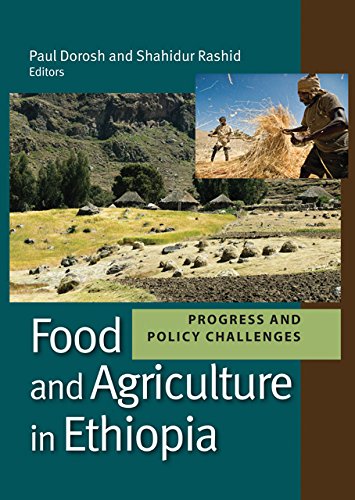

Most ebook files are in PDF format, so you can easily read them using various software such as Foxit Reader or directly on the Google Chrome browser.
Some ebook files are released by publishers in other formats such as .awz, .mobi, .epub, .fb2, etc. You may need to install specific software to read these formats on mobile/PC, such as Calibre.
Please read the tutorial at this link: https://ebookbell.com/faq
We offer FREE conversion to the popular formats you request; however, this may take some time. Therefore, right after payment, please email us, and we will try to provide the service as quickly as possible.
For some exceptional file formats or broken links (if any), please refrain from opening any disputes. Instead, email us first, and we will try to assist within a maximum of 6 hours.
EbookBell Team

5.0
30 reviewsThe perception of Ethiopia projected in the media is often one of chronic poverty and hunger, but this bleak assessment does not accurately reflect most of the country today. Ethiopia encompasses a wide variety of agroecologies and peoples. Its agriculture sector, economy, and food security status are equally complex. In fact, since 2001 the per capita income in certain rural areas has risen by more than 50 percent, and crop yields and availability have also increased. Higher investments in roads and mobile phone technology have led to improved infrastructure and thereby greater access to markets, commodities, services, and information.
In Food and Agriculture in Ethiopia: Progress and Policy Challenges, Paul Dorosh and Shahidur Rashid, along with other experts, tell the story of Ethiopia's political, economic, and agricultural transformation. The book is designed to provide empirical evidence to shed light on the complexities of agricultural and food policy in today's Ethiopia, highlight major policies and interventions of the past decade, and provide insights into building resilience to natural disasters and food crises. It examines the key issues, constraints, and opportunities that are likely to shape a food-secure future in Ethiopia, focusing on land quality, crop production, adoption of high-quality seed and fertilizer, and household income.
Students, researchers, policy analysts, and decisionmakers will find this book a useful overview of Ethiopia's political, economic, and agricultural transformation as well as a resource for major food policy issues in Ethiopia.
Contributors: Dawit Alemu, Guush Berhane, Jordan Chamberlin, Sarah Coll-Black, Paul Dorosh, Berhanu Gebremedhin, Sinafikeh Asrat Gemessa, Daniel O. Gilligan, John Graham, Kibrom Tafere Hirfrfot, John Hoddinott, Adam Kennedy, Neha Kumar, Mehrab Malek, Linden McBride, Dawit Kelemework Mekonnen, Asfaw Negassa, Shahidur Rashid, Emily Schmidt, David Spielman, Alemayehu Seyoum Taffesse, Seneshaw Tamiru, James Thurlow, William Wiseman.